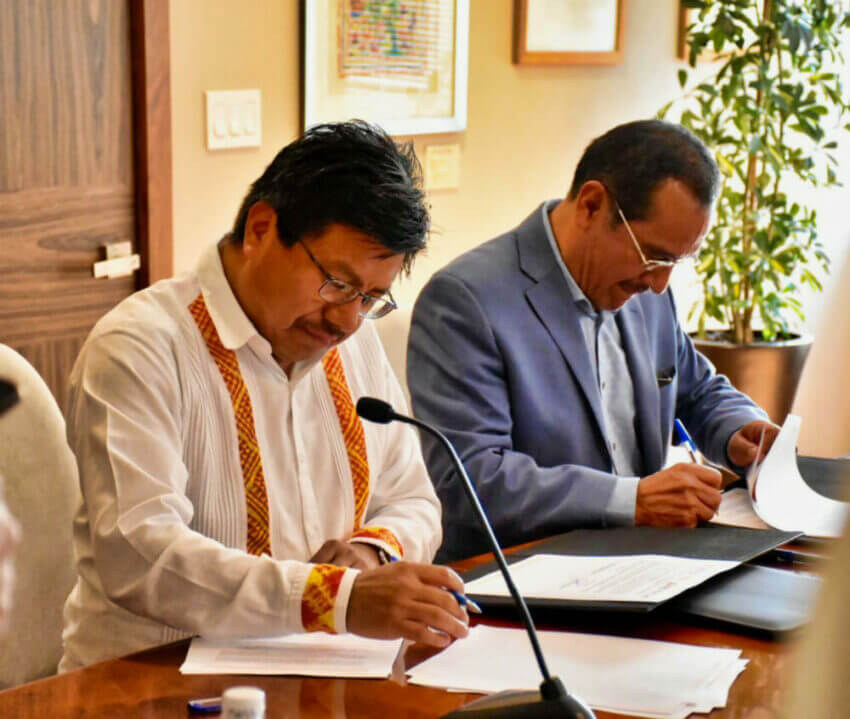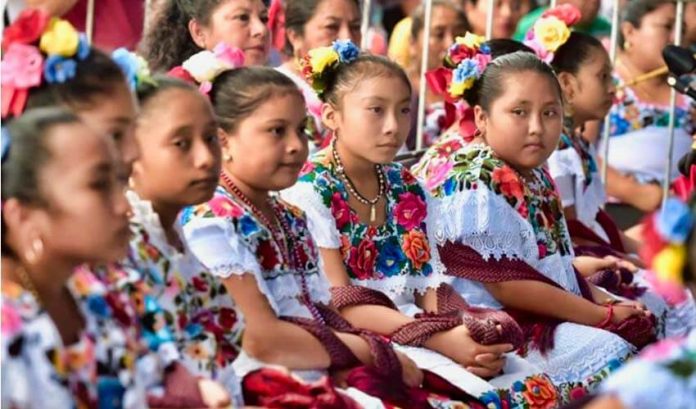A proposal to incorporate the National Institute of Indigenous Languages (INALI) into the National Institute of Indigenous Peoples (INPI) shows that protecting native tongues is not a priority for the federal government, according to Mexico’s representative to the United Nations Permanent Forum on Indigenous Issues (UNPFII).
The office of President López Obrador is proposing that the INALI, which was established in 2005, become part of the INPI, which was created by the current government in 2018 but continues the work of the now-defunct National Commission for the Development of Indigenous Peoples.
Irma Pineda, a Zapotec poet from Oaxaca who began her term as a representative to the UNPFII at the start of 2020, told the newspaper Milenio that the proposal would have an adverse effect on the former institute and goes against Mexico’s support for indigenous languages via the United Nations, which declared the period between 2022 and 2032 as the International Decade of Indigenous Languages.
“[INALI] would have less ability to design and establish linguistic policies at the national level,” she said.
“All this is regrettable, … [the proposal sends] a very bad message to indigenous people because it says that indigenous languages don’t matter much or they’re not a priority or that languages will be allowed to disappear,” Pineda said.

She noted that López Obrador participated in an indigenous cleansing ceremony on the day of his inauguration as president but his administration is now sending “very contradictory” messages with regard to its support for the nation’s indigenous people.
Pineda asserted that the INALI would face additional budget cuts as well as staffing cuts if it is absorbed into the INPI. She also claimed that the policy areas over which it has influence will be reduced.
Fernando Nava, the director and founder of the INALI, also opposes the plan to make the institute part of the INPI.
“In Mexico, we took a long time to give a special place to indigenous languages, and in less than 20 years, the institute is losing its autonomy,” he said.
The government’s proposal is indicative of a “sociopolitical disinterest” in indigenous languages, Nava said.
“At the beginning of the decade, attention to and the budget of the institutional space dedicated to languages was reduced,” he said.
More than 60 indigenous languages are spoken in Mexico, but many are considered endangered.
Practices such as Castilianization, which aim to convert speakers of an indigenous language to Spanish speakers, continue to exist in the state of Chiapas and exacerbate the risk of native languages disappearing, researchers from Western Kentucky University said last year after commissioning a survey in Mexico that included questions related to indigenous issues.
With reports from Milenio
